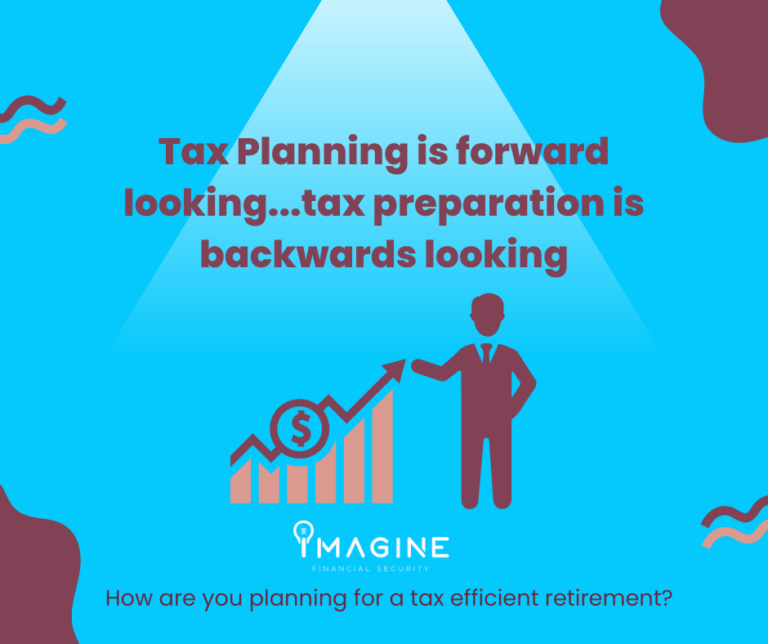Thinking about your financial future can be mind-numbing, let alone searching for a financial advisor who can help you. Why are there so many different titles? Do they all do the same thing? Is a financial advisor a fiduciary? Are they ALWAYS a fiduciary? Finally, what differentiates advisors who work for large companies vs independent firms? In this blog post, we will unpack and answer those questions for you, and help you understand the benefits of working with an independent financial advisor.
Quick Disclosure
I spent the first 12 years of my career as a financial advisor for a large broker-dealer and a large bank. In 2020, I made the decision to go independent for all of the reasons I will talk about below and I haven’t looked back. So YES, I am extremely biased in my belief that the independent financial advisor avenue is where clients are provided the best service!
Let’s start with a general lay of the land.
The Wall Street Crash in the autumn of 1929 led to an increase in regulation of the financial industry. As a result, Theodore Roosevelt officially signed the The Glass-Steagall Act of 1933, creating a clear division between different types of financial services companies. Simply put, insurance companies were then designed to sell insurance and banks were either investment banks or commercial banks. Wall Street Firms/Broker-Dealers sold securities.
Decades later, The Financial Services Modernization Act of 1999 was passed, and this law deregulated the financial services industry and essentially allowed everyone to play in each other’s sandbox. Insurance companies could now sell securities, banks could sell both insurance and investments, and brokers could now sell insurance products and act as a bank.
This led to a drastic shift in the financial advisor’s role. In the 1980’s, an insurance agent would just sell insurance. Over time the role of an insurance agent evolved, and now new hires at insurance companies are being licensed not just to sell insurance, but to sell variable products like annuities and mutual funds and even manage client assets as an investment advisor.
In the banking world, you have representatives who help customers with deposits, but they also have licensed insurance agents and investment advisors on staff. Have you ever gotten a call from your existing bank about a “wealth management” offering? If you keep a meaningful amount of cash in the bank, the goal for the wealth management team is to convince those banking clients to also purchase both insurance and investment products.
And finally, the wall street folks. These large brokers and investment banks can now sell annuities, life insurance, long-term care insurance etc.
My initial take on this...
I’m very keen on the idea of looking at everyone’s situation comprehensively. As a Certified Financial Planner, I believe we need to ensure all assets on the balance sheet are coordinated and risk is managed properly.
The biggest challenge I see, however, is that the big firms aren’t truly looking at it that way. Their main goal is to increase and diversify revenue for their stakeholders. I’ll say it again, their main goal is to increase and diversify revenue for their stakeholders. Not for you. Not for your family. But for THEIR balance sheets.
When it comes down to working with a financial advisor, there are some phenomenal advisors that work for large firms. The challenge is they all have their own metrics and minimums they must achieve in order to be successful and reap the rewards. So whether consciously or subconsciously, the consumer is always left thinking, “Is this recommendation 100% in my best interest?”
This is at the core of WHY I decided to leave a big firm and launch an independent firm. Rather than having people wonder if the recommendations are aligned with their best interests, why not simply cut out the conflicts of interest???
Let’s get into some of the reasons why working with an independent financial advisor could benefit you.
Fiduciary Standards

It is much more difficult to abide by a true fiduciary standard when you are acting as a fiduciary some of the time. Oftentimes advisors who are working for insurance companies or big banks might have incentives to recommend certain products. These products often follow the less arduous standard of “suitability,” and not a fiduciary standard. This means the product just has to be suitable at the time the recommendation is made. This can often lead to conflicts of interest in working with clients.
Kyle Newell, Owner and Financial Planner of Newell Wealth Management based in Orlando, Florida said this reason was a big motivator to go independent.
“My main driver in going completely independent, is the freedom to make decisions solely for the benefit of my client. No production/sales goals to hit, no shareholders to make happy, or managers to make look good to the higher-ups,” said Kyle.
When you hire an independent financial advisor, they are working for YOU, not their employer! Isn’t it nice to be sitting at the SAME side of the table as your advisor when discussing your financial future?
The Ability to Customize

At most big firms, the investment models are pre-packaged for clients. The advisor might do some sort of risk questionnaire, and anyone who has the same risk score will have identical portfolios.
But what about personalization? What about taxes? What about the time horizon of different accounts? What about different financial objectives?
As an independent firm, we utilize cutting-edge research and analysis but we’re able to implement it in a way that is customized to each individual family.
I’ll give you an example.
By late 2021, we knew interest rates were going to begin to spike in 2022 (because the Fed told us so). We had used primarily bond mutual funds and ETFs up to that point as interest rates were historically low over a decade.
At the beginning of 2022, we began to transition out of the traditional mutual funds and ETFs for some of our clients and implement their own customized individual bond portfolios. Additionally, we used hedging strategies within the fixed-income space to protect against the rise of rate hikes. This helped save tens and even hundreds of thousands of dollars for clients over the past year.
This would have been virtually impossible working at a big, institutionalized firm.
The ability to be nimble and pivot during uncertain times is invaluable over the life of a client relationship.
Independent Financial Advisors Have Modern Fee Schedules!
Have you heard of the financial advisor who babysits client assets for a management fee and does NO financial planning? (I’VE HEARD A FEW STORIES!)
Consumers are getting smart and are tired of overpaying for financial advice that doesn’t deliver. Many people are learning about different models like “advice only,” “flat fee financial advisor,” or “one-time engagements.” Most of the big firms charge the traditional methods of either commission-based compensation or a percentage of assets under management. But more importantly, they don’t require any financial planning for that fee!
Jeff McDermott is the owner of Create Wealth Financial Planning, an independent firm based in St Johns, FL serving young families and professionals. He had this to say about the fee models of independent advisors;
“A client who doesn’t fit the traditional advisor mold because they don’t yet have substantial investment assets, are looking for planning to address specific needs, or possibly hourly or one-time project planning might be more likely to find a good fit in the independent financial advisor world.”
My firm, Imagine Financial Security, serves retirees and pre-retirees for a flat fee. Our firm also provides one-time financial plans to ensure clients are on track.
It’s fun to be able to serve people in different ways that are innovative and ultimately better for the client.
Innovative Technology
One of the biggest challenges as an advisor working for a large firm is adopting and adapting to new technology. Oftentimes these big enterprises have technology embedded in their systems that are years or even decades old. If they had to change their technology, it could take years to integrate properly. Imagine the impact of making a change that affects one million or two million customers!
Many independent firms serve fewer than 250 households making new integrations much more palatable.
“The independent advisor space has advanced significantly in technology and breadth of services available,” says Newell.
Our firm utilizes two financial planning tools to help address the needs of our pre-retirees and retirees. RightCapital allows us to model cash flows and changes in a retirement scenario using Monte Carlo analysis.
We also use Income Lab to help manage withdrawal rates for clients throughout retirement. Additionally, if there is a need to make an adjustment, Income Lab is there to ensure those are made in a timely fashion.
Furthermore, these tools allow us to model Roth conversions to identify tax planning opportunities.
This has been a game changer to add further value to the families we serve.
Tax Planning

Speaking of Roth conversions, now we are getting to the heart of retirement planning challenges…TAX PLANNING! Once you crossover a certain asset threshold, let’s say $1mm of investment assets, taxes in retirement become a big deal. Social Security taxes, Medicare surcharges, tax bracket management, Required Minimum Distributions, and finally, death taxes. The value of maneuvering through all of these hurdles successfully in retirement is worth far more than how the investments are performing relative to their benchmarks.
Every movement of money has a tax consequence. So, wouldn’t it be nice to know what those tax consequences are before the money is moved???
Does your advisor have a copy of your most recently filed tax return? If the answer is “no,” then how in the world are they able to know what the impact of money movement is on your tax situation?
The more money you can save on taxes in retirement, the more you will have to travel or gift to your grandkids! Win-win!
Specialization

If you look at the client roster of a traditional financial advisor working at a bank or broker, you will find the demographics vary widely. There might be a 25-year-old just getting started with their investing career all the way to a 65-year-old preparing to retire. This might seem great on the surface as that advisor can serve multiple demographics. However, how specialized is that advisor in working with people just like YOU? Many independent firms specialize in working with a specific age demographic, occupation, or even serving those with certain political beliefs! This specialized expertise allows for a deeper understanding of the client’s needs and ultimately adds more value to the relationship.
Think of a general practitioner vs. a specialist. If you need heart surgery, you’re probably not going to see your family doctor.
It's all about the relationship
I know we’ve talked about some of the value adds and financial benefits of hiring an independent financial advisor. But at the end of the day, the relationships and families we serve are at the forefront of why we do what we do.
I was talking to a friend who works at a larger firm and he complains annually about how much his annual goal has increased.
And don’t get me wrong, I have business and personal goals myself. Any motivated individual has goals. However, when the goals get in the way of serving your clients, that’s a problem. And that is at the core of why independence is so important to me and many others who continue to break away from big firms.
When I review the list of families I serve, I get excited. Helping people plan for retirement is extremely rewarding. But furthermore, I love to help people reduce fear and start living their BEST years with the gift of time! Who wants to sit around and play with their investment portfolio (and likely screw it up), or try to find tax planning opportunities rather than pursue their passions!? Or spend more time with their families? Retirement is not the end, it’s the beginning of financial freedom! So enjoy it!
In Summary
Simply put, the independent advisor movement is growing in popularity. According to Fidelity’s 2020 Advisor Movement Study, 2/3 of all advisors who left employee financial advisor arrangements in the last 5 years left for independence. And the trend is only accelerating.
Third-party organizations like XY Planning Network, NAPFA, Fee-Only Network, and Wealthtender all offer “find an advisor” search tools to help you narrow down what you’re looking for.
Our firm focuses on working with individuals and couples who are over 55 and have accumulated at least $1mm for retirement (or will have accumulated at least $1mm when they do retire). If you are curious about how we can help you, feel free to book an initial 30-minute “Mutual Fit” meeting so we can get to know one another. Also, make sure to subscribe to our blog so you never miss out on our latest posts!
Until next time.
